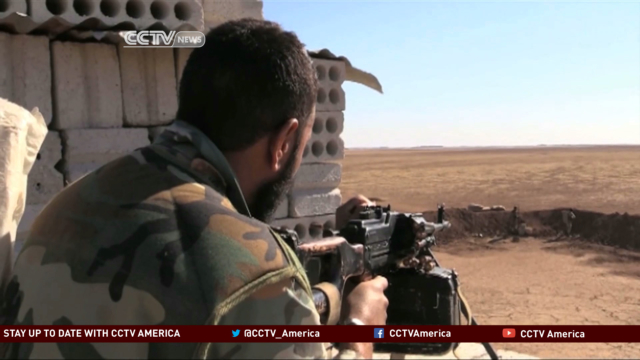Qamishli is a strategically important, Kurdish-majority city in northeast Syria. It borders Turkey and is close to Iraq. While its northern region is controlled by the Syrian government, its south is a base for ISIL militants. The city also lies along a major route for relief supplies to Iraq and Syria. CCTV America’s Alaa Ebrahim reported this exclusive story from the front lines as he traveled with the Syrian National Defences Forces in their fight against ISIL.

The Syrian Army’s 54th airborne regiment mans the area surrounding Qamishli to the south and the dangerous territory dictates the presence of armed convoys. Local field commanders refused to show their faces in fear of more assassination attempts by the radicals.
“The open lands give us an opportunity to detect all infiltration attempts beforehand. We are using anti-armor missiles to target ISIL pickup trucks as it is their most common weapon,” said a Syrian Special forces soldier. “They have tried several times to take the city, the last of which was almost a year ago and they sent in over 1,000 fighters but we stopped them.”
Syrian defense forces Captain Odai said that after the taking of Mosul they were hit with long-range weapons that the terrorists seized, including long range-artillery and rocket launching vehicles. This prompted the Syrian forces to initiate an operation to protect the city.
“The coalition air raids are futile and they are designed to prevent us from making gains against ISIL. We can defend the city and the more we control more people join us,” Odai said.
The Syrian government counts on getting more recruits into the pro-government militias of the National Defense Forces to hold the newly acquired areas.
This has been ISIL territory for quite some time, but a recent operation by the Syrian military has managed to push ISIL back 13.7 miles, or 22 km. The goal was to create a safety parameter around Qamishli.
Farmers have returned to the surrounding fields and begun planting again after fighting has long prevented them access. Many said they hoped peace would prevail long enough to see a harvest.
 CGTN America
CGTN America
